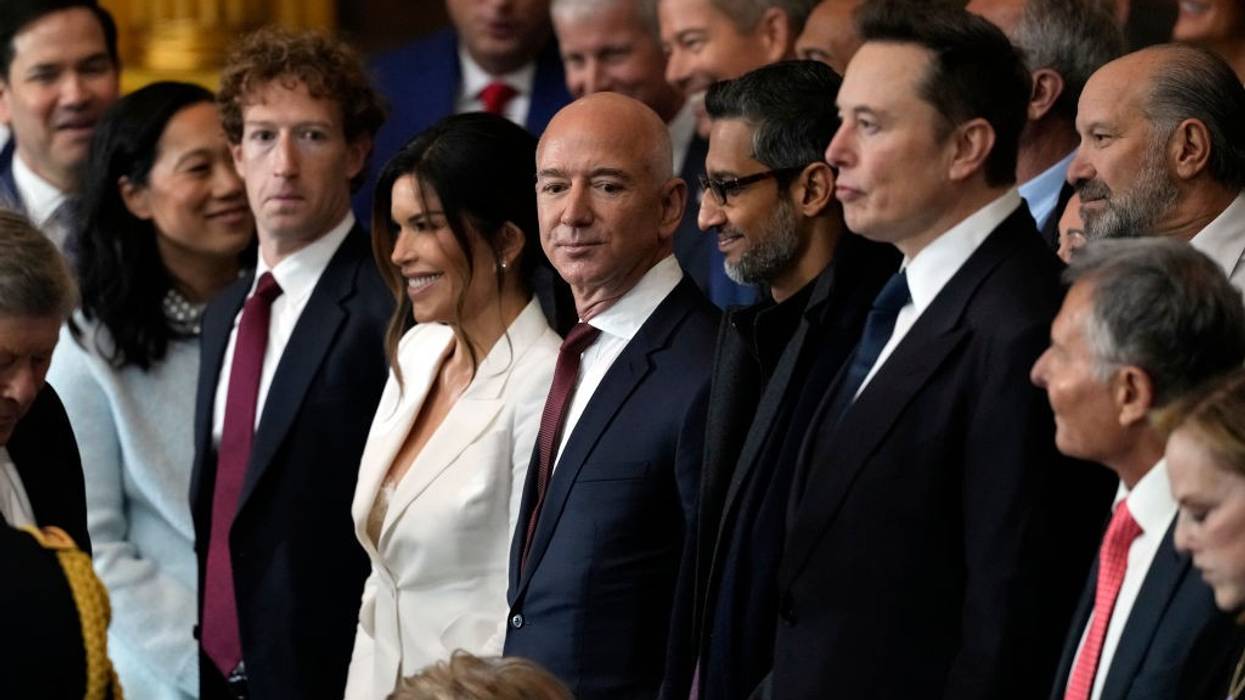As America's communities continue to face oppressive water rates amidst a haunting pandemic, Rep. Brenda Lawrence and Rep. Ro Khanna introduced federal legislation today that would transform America's water infrastructure and ensure affordable, safe, and clean public water for all in this country. Senator Bernie Sanders introduced a companion bill in the Senate.
The Water Affordability, Transparency, Equity and Reliability (WATER) Act of 2021 is the comprehensive solution to America's escalating water woes. And Americans overwhelmingly support it.
The People's Water Project, a group dedicated to passing the WATER Act, joined 73 U.S. House representatives, 4 U.S. Senators, and a diverse coalition of 540 justice, labor, environmental, and advocacy organizations in endorsing the legislation. The organizations include ACRE, AFSCME, Consumer Reports, Corporate Accountability, Earth Justice, NAACP, Flint Rising, Food & Water Action, Citizens Action Coalition, In the Public Interest, United Steelworkers,The Water Collaborative of Greater New Orleans, and UAW, among others.
"The crisis in Texas illuminated how vital access to running water is for human survival. And the COVID-19 pandemic has put on display the unjust reality of America's water affordability, reliability, and equity crisis. Now, Congress finally has a real solution with the WATER Act of 2021," said Brittany Alston, Deputy Research Director of Action Center on Race & The Economy. "The only way to combat America's water crisis is with this type of bold, reparative change that both challenges corporate power and addresses water affordability, accessibility and quality across the entire country, especially in low-income and BIPOC communities. We thank Representatives Brenda Lawrence and Ro Khanna, Senator Sanders, and every Congressional cosponsor for stepping up for America's families today."
The WATER Act of 2021 creates a WATER Trust Fund that would dedicate $35 billion each year to grant programs and to the Drinking Water and Clean Water State Revolving Fund (SRF) programs. These programs include a specific focus on providing support for rural and small municipalities, Indigenous communities, and low-income Black and brown communities who face disproportionate water issues.
Additionally, the WATER Act can create upwards of 1 million jobs at a time our country needs them most and will require the use of U.S.-made iron and steel on water system projects. It also applies prevailing wage law and encourages union labor to all projects funded by the Drinking Water and Clean Water State Revolving Fund programs.
"We have a moral and ethical obligation to ensure that all people have access to clean and affordable water," said Mary Gutierrez, Founder and Director of Earth Ethics. "For years, pre-COVID 19 and recent natural disasters, we have seen the inequities in the distribution of water, the WATER Act addresses these inequities. The WATER Act ensures that all communities, low-income, BIPOC, have access to clean and affordable water. Let's not forget that we can expect to see additional impacts to our existing infrastructure with increased intensity and frequency of storm events due to climate change. It's time to act now to address our failing infrastructure before more adverse environmental and public health impacts occur."
Over the past 50 years, federal funding for water has declined by more than 80% on a per capita basis. As a result, water rates have skyrocketed and are now unaffordable for millions of households in the U.S. When households are unable to pay these exorbitant bills, states often allow water service shutoffs.
In the face of COVID-19, a disease that has led public health officials to urge frequent at-home hand washing, only 43% of the U.S. population are protected from water shutoffs, and hundreds of local and state moratoria have already expired. As a result, 57% of the U.S. population --186 million people--are at risk of losing their water supply if they cannot keep up with bill payments during an unprecedented economic recession.
"From Flint to Pittsburgh, the private water industry's failures have endangered communities. It's clear that public investment -- not privatization under any name -- is the solution to American's drinking water and wastewater infrastructure crisis. And the WATER Act is just the tool we need," said Alissa Weinman, Associate Campaign Director at Corporate Accountability. "COVID-19 has only exacerbated the long-standing harms of lack of safe water access, particularly for low-income communities, Indigenous communities, and communities of color. In order to truly 'Build Back Better,' the federal government must renew its commitment to the human right to water by robustly funding our nation's water systems."
The WATER Act of 2021 not only responds to water accessibility and affordability, but also to privatization and quality. It details a path for upgrading our water systems to remove highly toxic and hazardous chemicals like lead and per-and polyfluorinated substances (or PFAS) from drinking water while also maintaining public control over these systems instead of handing over control to the private water industry and their Wall Street partners that want to commodify water for profit over public health.
---
Additional quotes from People's Water Project Partners:
"Water is life. We have a sacred duty to heed the cry of the earth and the cry of her most vulnerable people. Supporting the provisions of the WATER Act, including protections specifically aimed at improving water access and affordability in BIPOC communities, is our moral duty," said Blair Nelsen, Executive Director of Waterspirit.
"From the plague of water shutoffs during a pandemic for countless families with unaffordable bills, to the recent heartbreaking scenes across the South of frozen pipes leaving millions without water to drink and bathe, it has become desperately clear that our country is in a water crisis. Grave crises require robust solutions, and this is just what the WATER Act provides," said Wenonah Hauter, Executive Director of Food & Water Action, a leading organizational supporter of the bill. "The WATER Act paves the way to rebuilding our failing water system by addressing maintenance and modernization, cleanliness and safety, affordability and social justice - all in one clean sweep. The time for Congress and the Biden administration to make this critical legislation a priority has very clearly come. Our country can't wait any longer for a functional, safe and affordable water system for every community."
"Privatization of our water systems is a threat to public health, the environment, and democracy," said Donald Cohen, Executive Director of In the Public Interest. "Water is an essential public good, not a market commodity for corporations and wealthy investors. We need direct federal investment in water infrastructure across the country. This is an opportunity for the federal government to prove it works for all of us and not just the wealthy and connected."
On behalf of all the people who are suffering the consequences of a failing for-profit system and are denied the basic right to clean, affordable water, the People's Tribune newspaper supports the Water Act," said Sandy Reid of People's Tribune.
"Access to clean and affordable water is a basic human right. But for far too long, our country has allowed water to become a market commodity," said Toni Preston, Senior Campaigner at SumOfUS. "The Water Act is a necessary piece of legislation that will finally begin to address our country's failing water infrastructure, and ensure that every person in this country has access to clean and affordable water."
"The WATER Act is the first essential step towards social and economic liberation of all people, especially for the poor and marginalized. The 2020 Atlantic hurricane season generated 30 names tropical storms and 13 hurricanes, 6 of which were major hurricanes. This along with the recent winter storms that are pummeling Texas, Louisiana, and Mississippi exposes the deep privation and indigence of the nation's water infrastructure. The WATER Act meets the nation's most pressing need for sustained investment into aging and unprepared water systems.," said Jessica Dandridge, Executive Director of The Water Collaborative,New Orleans.
In the U.S. Southwest - Arizona, California, Nevada, New Mexico, and Utah - there is less rain and snowfall each year than the amount of water used in homes, businesses, and farms. As aquifers dry up, competition for scarce resources between water utilities, rural communities and agriculture leaves poorer communities at a disadvantage. In the face of climate change, with significant portions of the Southwest already under extreme drought conditions, these challenges threaten to endanger the health, safety and livelihoods of some of the most vulnerable people in our country. Federal investment in public water utilities is a critical necessity as the climate crisis looms, said Mariel Nanasi, Executive Director of New Energy Economy in New Mexico.





